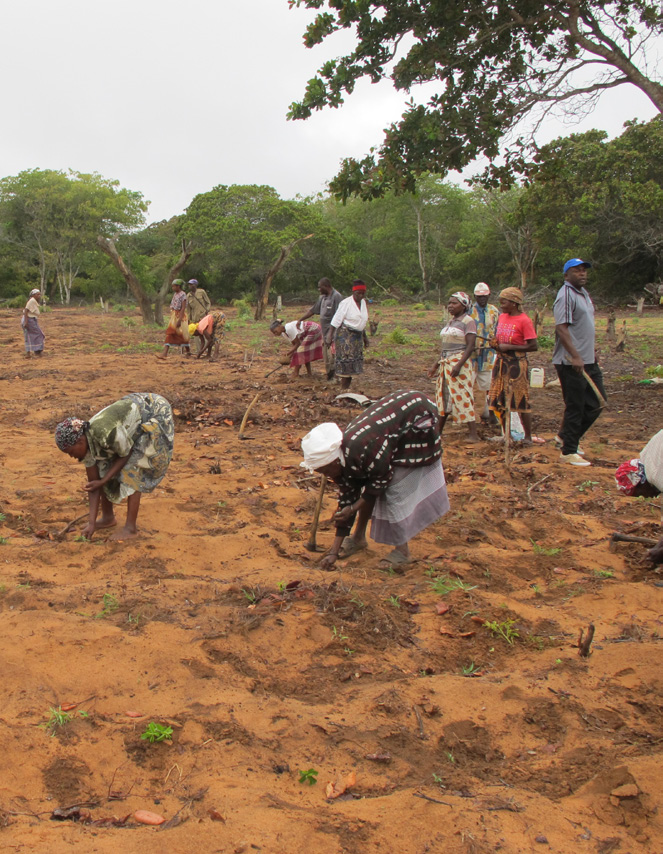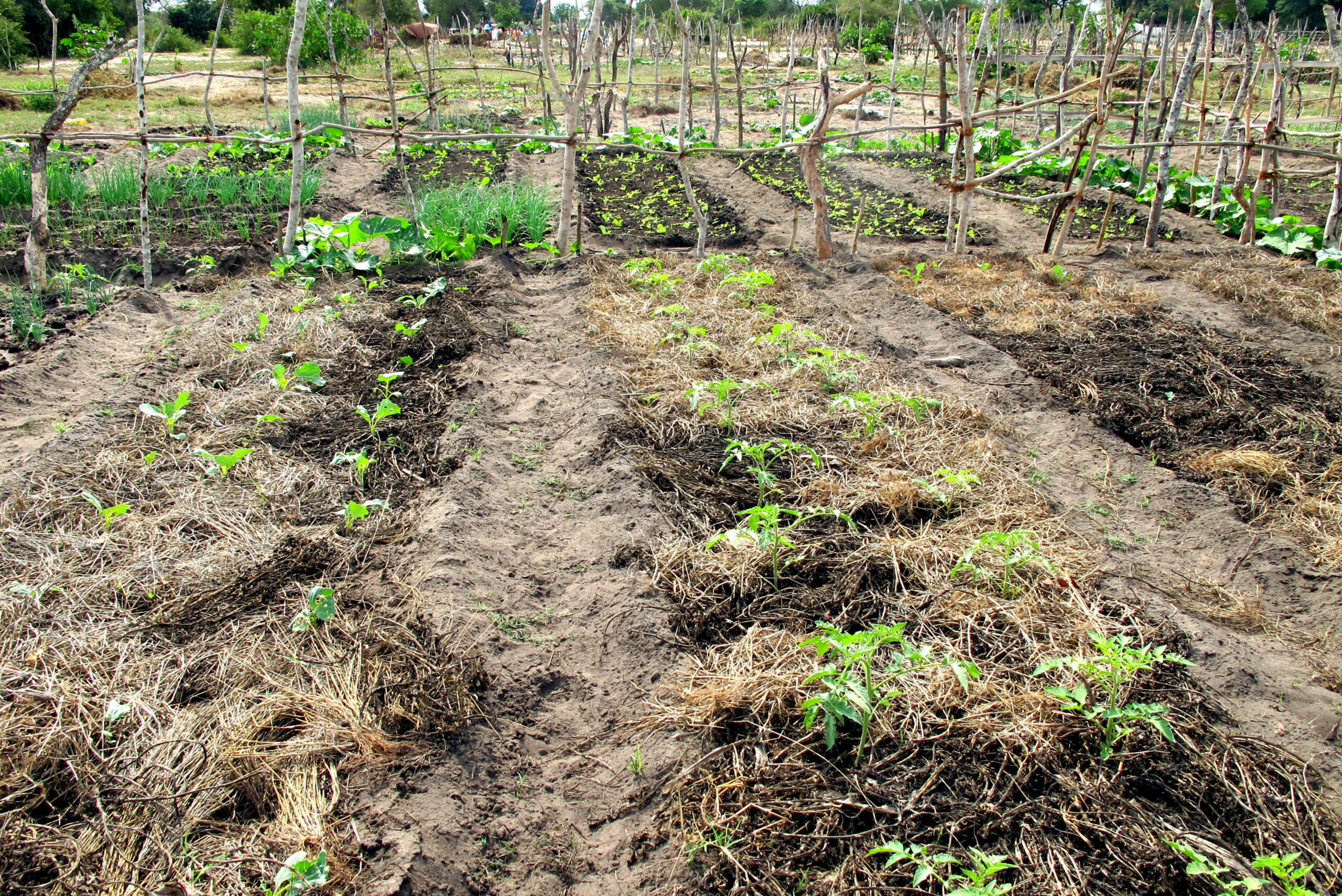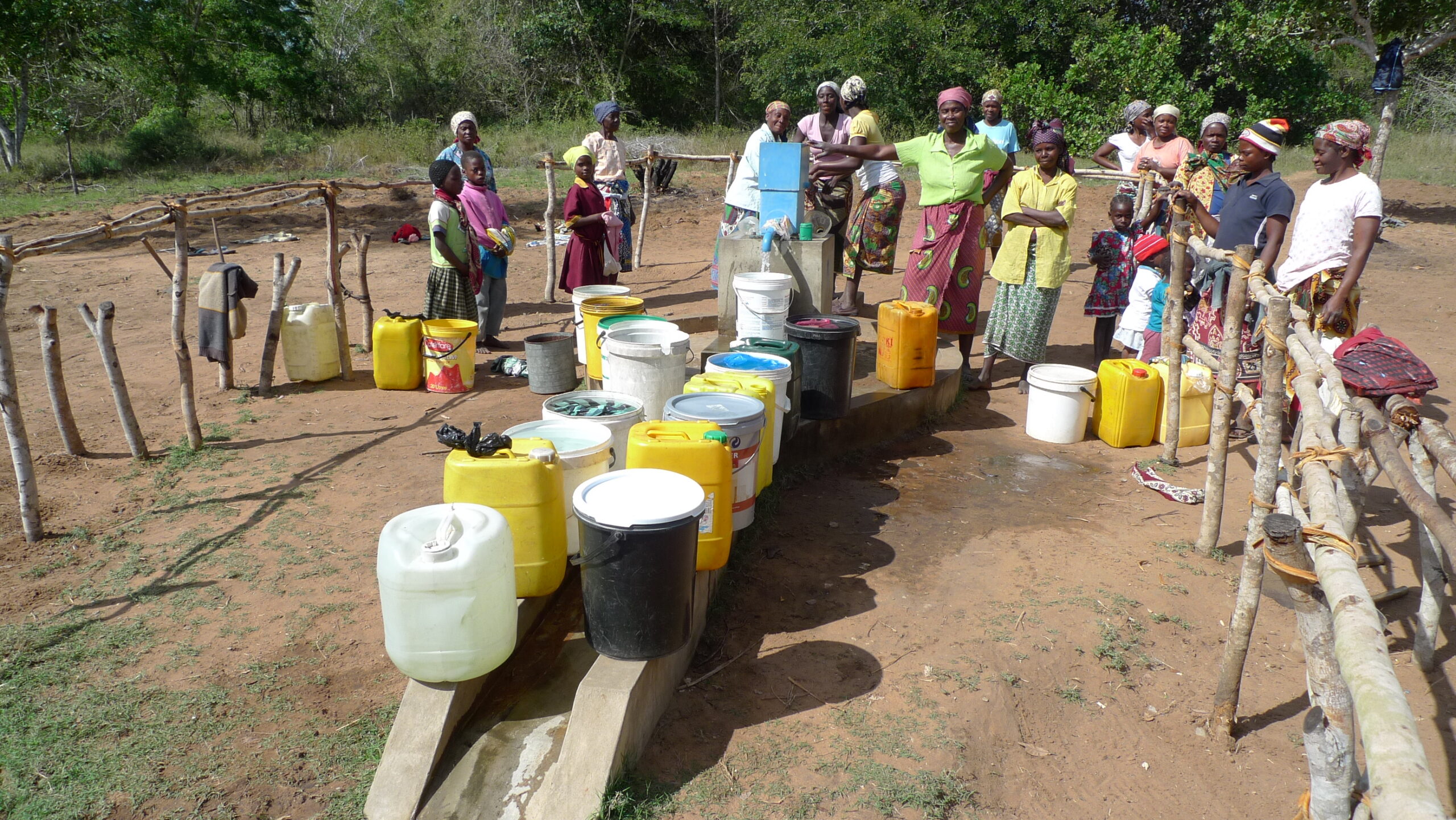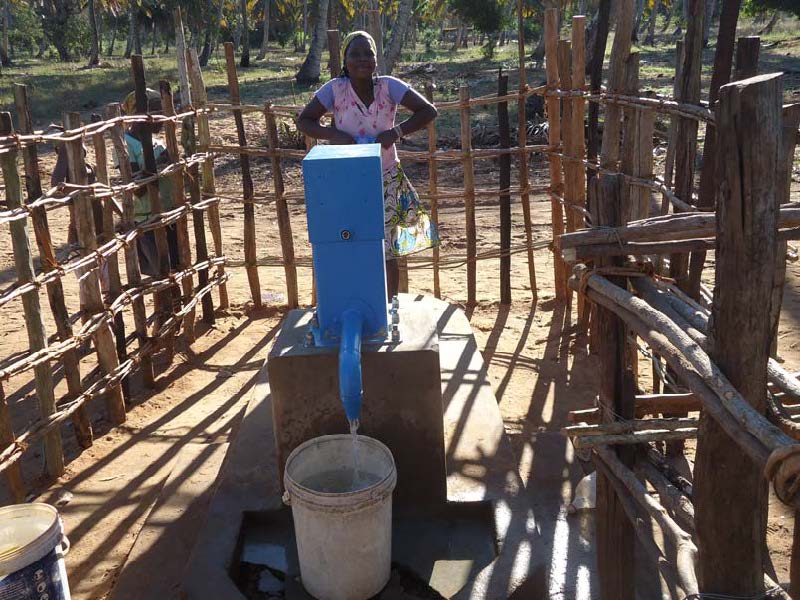Colheita I & II
Reducing climate change vulnerability by improving WASH and agriculture practices
Mozambique
 Water, Sanitation & Hygiene
Water, Sanitation & Hygiene
 Climate-smart Agriculture & Food Security
Climate-smart Agriculture & Food Security
 Infrastructure & Essential Services
Infrastructure & Essential Services
2009-2014
USAID

The Reduction of Vulnerability to Drought, Cyclones, and the Impacts of Climate Change in Southern Mozambique (Colheita I & II) projects sought to reduce communities’ vulnerability to drought and cyclones in five districts of Mozambique’s Inhambane province while promoting enhanced resilience to climate change. Activities reached more than 69,000 people, helping to prepare communities for weather changes through a holistic approach that included agricultural development and WASH services.

Building Agricultural Capacity
With natural disasters and climate change threatening food security in the region, we worked to help farmers adapt by improving natural resource management and sustainably increasing productivity through conservation agriculture. Our teams managed community-based field schools to facilitate training for farmers. More than 2,800 farmers (74% women) completed conservation agriculture training through Colheita II, and nearly 200 groups participated in demonstrations and trainings at the school’s learning plots. We also trained nearly 1,200 farmers in vegetable production. More than 80% of farmers reported using conservation agriculture practices after the training.

Strengthening Infrastructure and Awareness
Access to safe, clean water was one of the biggest challenges in Inhambane province. Our teams set out to rehabilitate water infrastructure, improve hygiene practices, form community water resource management committees, and expand safe access to water in the five districts. We conducted community-led total sanitation campaigns to raise awareness of safe hygiene and sanitation practices, and trained local volunteers to support campaigns.

Expanding WASH Access
During the Colheita I program, we increased the availability of safe water in two districts by constructing 14 cisterns at rural schools and improved captured water levels at eight sites. At each site, we provided hygiene trainings to people living in the area. During Colheita II, we replaced and installed 41 rainwater harvest systems in schools and health centers and helped install harvesting systems on the rooftops of 800 homes. Non-working hand pumps were replaced with deep well hand pumps and more than 2,300 latrines were built.



